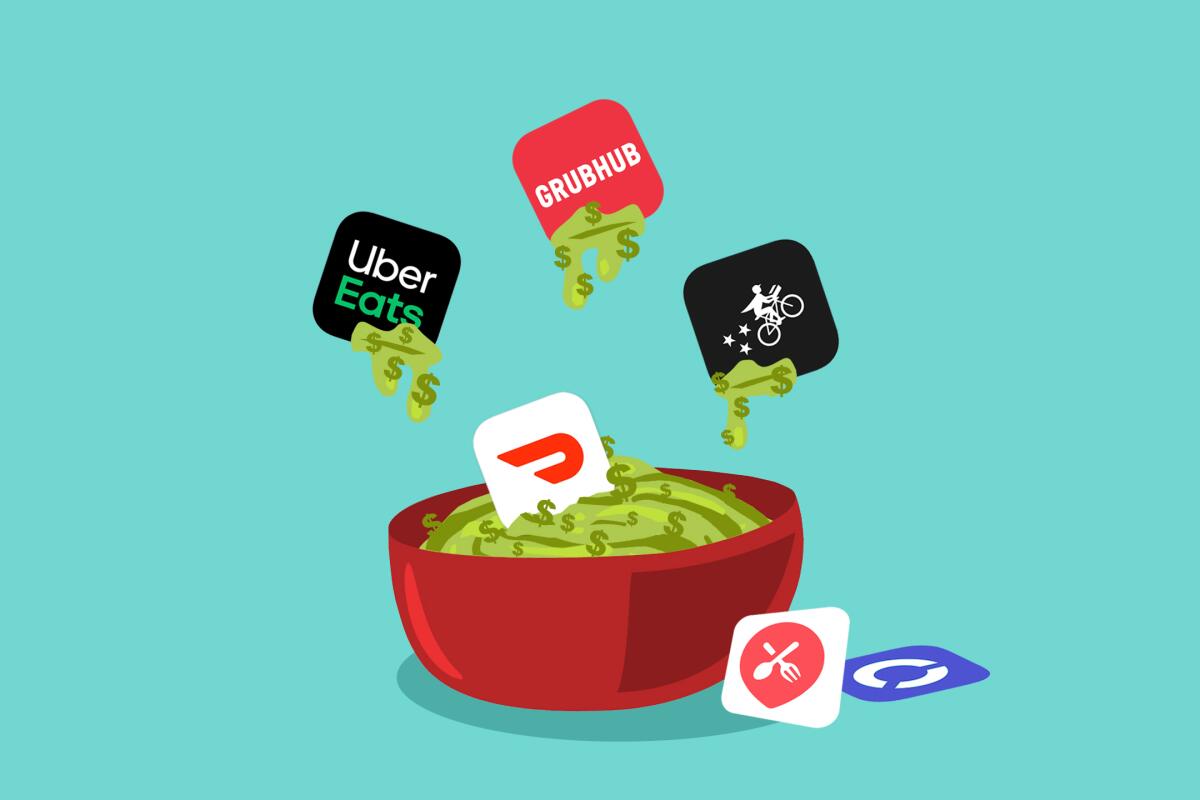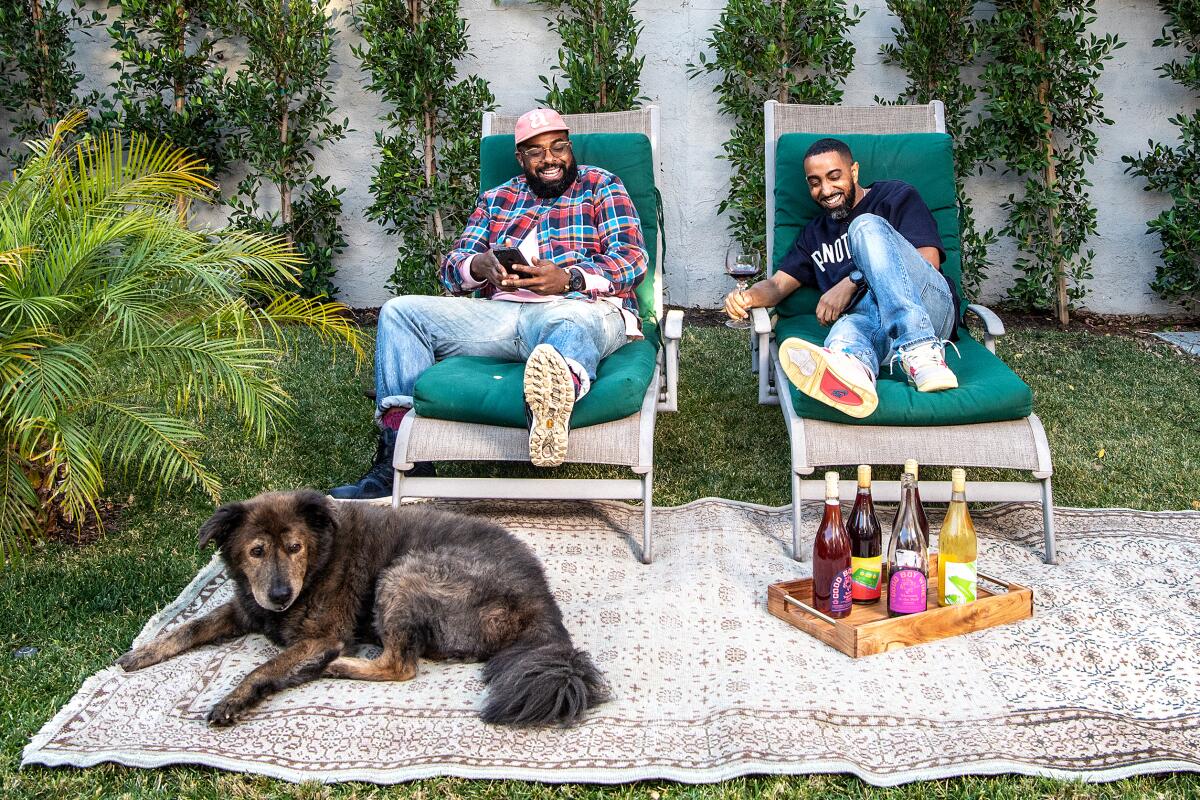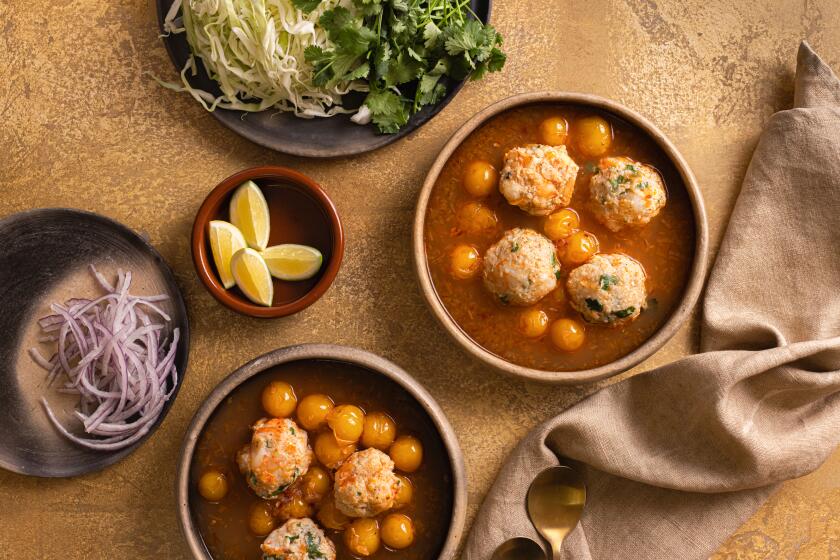Tasting Notes: The hidden costs of food delivery

During the last 13 months, the Food section has reported on the food industry and how it’s faring during the pandemic — how restaurateurs are struggling to pay rent and how chefs are launching pop-ups in an attempt to keep their creative spirits alive and support themselves.
We have written about the people who work, for the most part, anonymously — back-of-the-house employees, delivery people, restaurant suppliers — and the good Samaritans who are trying to help them.
And this week, we’ve done a deep dive into third-party delivery and ordering services.
Enjoying this newsletter? Consider subscribing to the Los Angeles Times
Your support helps us deliver the news that matters most. Become a subscriber.
I’m Alice Short, The Times’ interim food editor, subbing for our restaurant critics, who are on special assignment, and I’d like to suggest that you spend time with Jenn Harris’ story on the high cost — to restaurants — of having your food delivered.
“It’s no surprise that restaurants are paying fees to food delivery service companies,” Harris writes. “For many restaurants, these apps provide a service they simply cannot facilitate on their own. But the tally of the charges has been a shock to many.”
What to do? Order directly from restaurants. “When you order direct, there are no fees for you, and little or no fees for the business.”
Eat your way across L.A.
Get our weekly Tasting Notes newsletter for reviews, news and more.
You may occasionally receive promotional content from the Los Angeles Times.
Meanwhile, there are a number of emerging voices calling for lower fees and more accessible technology in the food delivery world. Stephanie Breijo does a deep dive on three services that offer new takes on menus, ordering and delivery.
There’s Lunchbox, which charges restaurants a monthly flat fee that ranges from $88 to $490; the platform maintains the virtual end of cloud kitchens, creates marketing materials like Instagram ads, and hosts and designs apps, websites and ordering pages.
There’s DïNG, an Asian-cuisine-focused operation that allows menu ordering through a format arranged by dishes or even region rather than restaurants — creating a sort of editors’ pick of dishes.
And there’s Drive-By Kitchen, a new service that chooses an ever-changing lineup of dishes from multiple restaurants throughout L.A. and Orange County and then delivers them to three pickup locations.
L.A. Times Dinner Series
The next L.A. Times Dinner Series event is a pizza and wine party that takes place on Sunday, March 14. Times food columnist Harris hosts actor and pizza aficionado Eric Wareheim (“Tim and Eric Awesome Show, Great Job!” and “Master of None”) for an online conversation along with chefs in three cities, including Daniele Uditi of Pizzana in Los Angeles. On the day of the event, participants pick up Pizzana’s signature cacio e pepe pizza, along with a bottle of Las Jaras Glou Glou red blend, and join the talk at 5 p.m Pacific.
Tickets are $95 per person. The charity partner for the event is Project Angel Food.
Have a question for the critics?
Our stories
— Corie Brown reports on how a group of wine enthusiasts, moved by the killing of George Floyd, got together to raise college scholarship funds to support students who are Black, Indigenous and people of color and who want careers in wine. They’re doing it through a Black-culture-centric wine club.
— Lucas Kwan Peterson pens a love letter to the sobaquera, a Sonora-style burrito wrapped in an almost comically oversized tortilla de harina, from El Ruso in Boyle Heights. You can watch him eat one as well.
— And if you like that, check out our video with Peterson, Harris and Ben Mims as they slog their way through a fried fish sandwich throwdown.
— Like to cook but dislike dealing with leftovers? Mims has the perfect solution: He packages the extra food as meals for his friends. “Several of my friends lived alone, didn’t like cooking or had lost jobs because of the pandemic,” he writes, “so bringing them food helped not only me but also helped them in a practical, necessary way — it was both fuel and fellowship but without the religious associations.”

Eat your way across L.A.
Get our weekly Tasting Notes newsletter for reviews, news and more.
You may occasionally receive promotional content from the Los Angeles Times.




